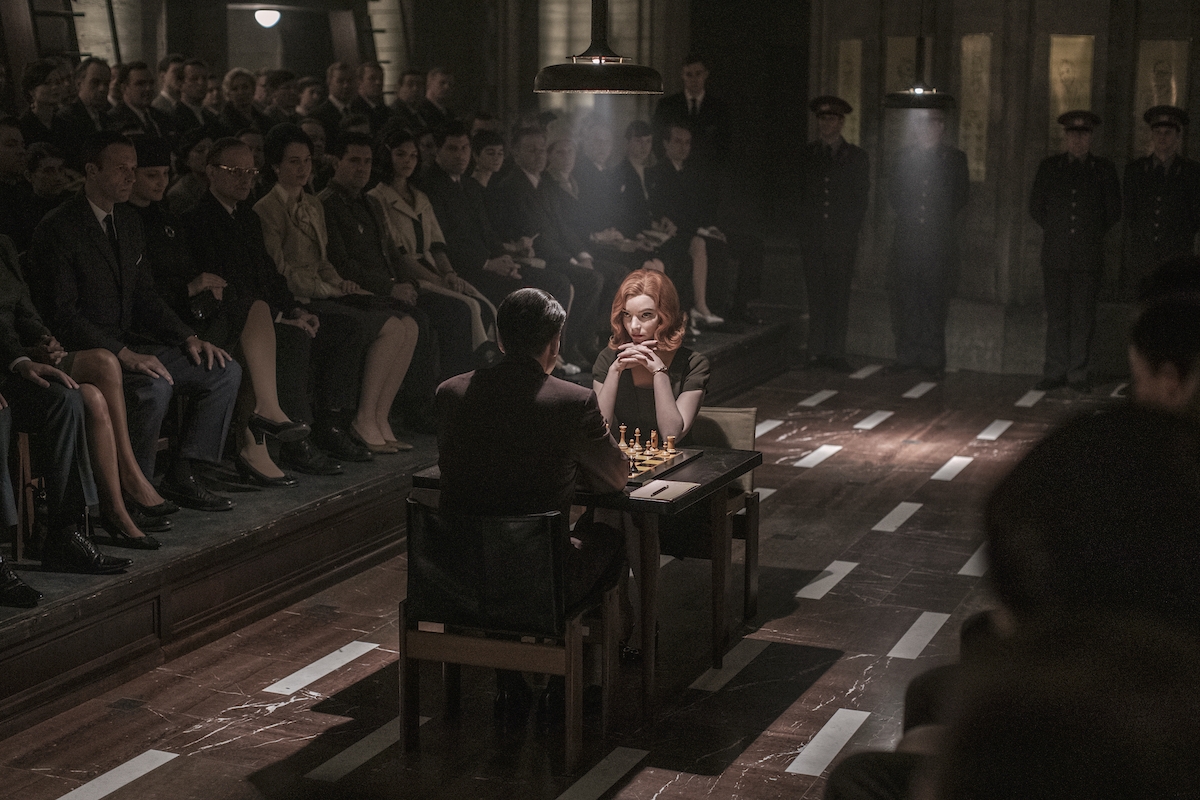THE QUEEN'S GAMBIT: A REVIEW
The Queen’s Gambit tells a story that is firstly served in small doses and as it further unfolds, it sucks you into its endless hole that goes on and on, up until its very satisfying end in the last episode. It is a coming-of-age period drama mini series based on the novel by Walter Tevis about chess prodigy Elizabeth Harmon, incorporating themes such as adoption, feminism, chess, drug addiction and alcoholism.
Following a road accident that takes her mother’s life, Harmon is enrolled at an orphanage from eight years of age. At the time, her father had long left the picture and precious little information is revealed about him. The orphanage is where she is first exposed to chess by the janitor Mr Shaibel, who teaches her how to play. She also makes a friend, at the Orphanage called Jolene who makes a comeback at a defining moment for her towards the ending. The movie series basically walks us through Harmon’s life - the people she meets and difficulties she encounters on her journey to becoming world best.
Very importantly, it opens up a discourse about drug use and dependence. The main character, Elizabeth Harmon is introduced to drugs at a very young age at the Orphanage. In that era, children were mandated to receive a daily dose of drugs by the government. She quickly figures out which drug gives hallucinatory effects which helps her imagine and replay her chess games at nights. With constant use in the coming years, she becomes dependent on drugs/alcohol. There are instances in the series where she does not believe she can play or win a tournament without using drugs. It causes one to wonder about the concept of genius and having to sustain that with some form of stimulant cue in drugs. While watching, this question recurs “Does high degree of intellect always have to be synonymous with drug use?”.
The movie series also sparks conversations about family, how having a put together family or not is instrumental in the normal development process of a child. Harmon was adopted by a couple after spending some years in the orphanage. And notably, her new mother regularly smoked and drank in Harmon’s presence. One would wonder if that was a key factor in Beth’s eventual dependence on alcohol.
We are shown that despite the fact that Harmon had a gift for chess, she would spend hours poring over chess books, consuming information about other chess players, spend nights replaying games to figure out flaws and how to do better. All these point to the fact that you get better at what you spend time with. Talent will always be bettered by skill earned from practice.
We see how the power of relationships come to play in the last defining tournament, where Harmon plays against World Champion Vasily Borgov in the 1968 Moscow Invitational Chess Tournament. It was beautiful to see how her friends came together to lend their support. It makes me think of how people are all we’ve got after all. It brings to bear one of my favourite Yorùbá sayings - Ènìyàn Laṣọ meaning that people are your clothes literally, they cover you, protect you and stand by you in difficult and dicey times.
Need I mention that I was very fascinated by the character Elizabeth Harmon; her poise, her reticence, how before each game she would lift her hands to her face, place her elbows on the table and rest her chin on the back of her fingers, looking straight faced at her opponent. Do I also talk about how her fashion and make up game went from a zero to a hundred using money she earned from winning chess tournaments? Elizabeth Harmon is a character worth studying.
I believe that The Queen’s Gambit is sheer brilliance on screen and everyone should watch it, if nothing at all it makes for a surreal cinematic experience.
Temiloluwa Adeniyi-Aogo








Post a Comment